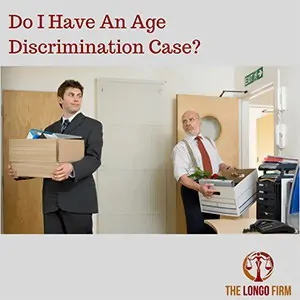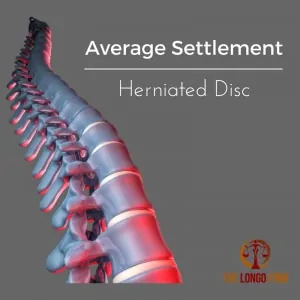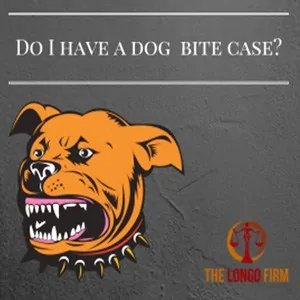Articles

If you’re over 40 and you’ve recently suffered an adverse employment action you may have an age discrimination case. The Age Discrimination in Employment Act (“ADEA”) is a federal law that makes it unlawful for an employer to discriminate on the basis of age. Things You Must Prove There are 2 things you must prove to have an age discrimination case. First, you must be at least 40 years old. Second, you must prove your age was the motiving factor for the employers decision. You can prove age discrimination by direct evidence or by circumstantial evidence. Only the most blatant remarks, will constitute direct evidence of age discrimination. Circumstantial evidence is more common. In age discrimination cases based on circumstantial evidence, you must prove the following: you’re at least 40 years old; you were subject to adverse… Read More

After a slip and fall case it’s perfectly normal to wonder if you have a good case. What makes a good slip and fall case depends on a few key factors. Generally, it will come down to fault and injuries. Notice Rule If you slipped and fell because of liquid or some other foreign substance in Florida you’ll need to first prove “notice.” This means that the property owner knew (or should have known) that the liquid or “transient substance” was on the ground. This sometimes can be challenging. For example, if fell because a young child spilled juice on the grocery store floor just moments beforehand, you may not have a case. This is because the grocery store did not have enough notice to clean up the spill. So how do you prove the store or property owner had notice?… Read More

Every accident case is different. This makes answering how much an average herniated disc settlement in Florida challenging. Florida accident attorneys rely on experience and jury and settlement reports. Here, we’ll discuss what exactly is a herniated disc and how we prove it. We’ll also look at several actual herniated disc settlements and verdicts in Florida. What Is A Herniated Disc? First, what is a herniated disc? A health disc is a two dimensional round or oval structure having four (4) 90-degree quadrants. Think of a pizza pie cut into 4 equal pieces. The discs sit between the vertebra and act as shock absorbers. A herniated disc occurs when the jelly-like disc material leaves the center of the disc. The chemicals from the disc can leak out acting as an irritant. This usually causes pain. A herniated disc can also indent the spinal canal,… Read More

Under Florida’s Dog Bite Statute, if you are bit by a dog, regardless of the dog’s viciousness, you likely have a dog bite case against the dog owner. However, a dog owner is not liable if you were on the dog owner’s property, without permission. For example, if you were trespassing at the time you were bit, you might not have a dog bite case. Also, not all dog bite cases are the same. The more serious the injuries the more the case is worth. Generally, bite wounds to the face are worth the most. Homeowners Insurance Policy You’ll want to get a copy of the dog owner’s homeowners insurance policy. You should request the policy in writing. Be sure to send the request certified mail – return receipt. The dog owner then has 30-days to respond… Read More

There are many factors that go into a good car accident case. Things like your age, accident history, amount of property damage, injuries, medical treatment, and bills all factor into valuing your case. We will assume you’re not at-fault for the accident and the other driver is insured. It’s important to remember that no car accident case is the same. Factors discussed should be taken as a whole. No single factor will make (or break) your car accident case. Property Damage One of first factors the insurance company will look at in evaluating your car accident case is the property damage to your vehicle. If you think about it logically, the bigger the impact, the more property damage. So, the more property damage the more likely your injuries are significant and caused by the crash. But… Read More

After an accident the insurance company will ask you to give a recorded statement. Should you give a recorded statement to the insurance company? The answer depends on who is asking. You are under no obligation to make a recorded statement unless your own insurance policy requires it. Almost every insurance policy has such a provision. Then, and ONLY then, should you make a recorded statement. Do Not Volunteer Information If you must give a recorded statement please remember DO NOT volunteer information. This cannot be emphasized enough! You should never volunteer statement to ANYONE if you don’t have to. Not to the police, witnesses, or insurance adjusters, unless required by law. Florida is a comparative negligence state. This means, if you are found partially at-fault, your claims can be reduced by the amount of… Read More

The best accident lawyers in Florida are excellent salesmen. They’ve been to law school and have years of experience in negotiating claims. Accident lawyers know they are selling a product. In the accident claims game the product is damages. The sale includes pain and suffering, medical bills, and lost wages. Since you can’t go back in time, the product used to settle claims of damages is money. It’s easy to find the best accident attorney in Florida based on the following: Good Working Relationship The best accident lawyers in Florida spend time with their opponent. This can be an insurance adjuster or a defense attorney. They always treat their opponent with respect and professionalism. No one likes being treated like a second-class citizen. This is especially true of insurance adjusters. Now this doesn’t mean an accident lawyer should become… Read More

You should see a doctor immediately after an accident in Florida. This is best, but if not immediately after an accident, then as soon as possible thereafter. Any delay in treatment could have an adverse effect on your case. Immediate treatment does not mean you must go to the emergency room. You can go to an urgent care facility or your primary care physician. I do, however, recommend that you first see a medical doctor, as opposed to a chiropractor, at least in the beginning. You will want to see a doctor immediately because if something is seriously wrong, you’ll want to know it early on. Also, insurance companies track when you first treated. If you waited too long to seek medical treatment, the insurance company will argue that you’re really not hurt. Many times people are hurt but… Read More
Getting medical records after an accident in Florida is an essential part of handling the injury claim. Medical records provide a view of the pain and suffering endured by the patient during treatment. They are vital components in building an understanding of medical treatment and pain and suffering management. In this article I will discuss obtaining medical records after an accident, assuring completeness of the medical records and some basic information on organizing and analyzing the medical records. Obtaining Medical Records The assessment of pain and suffering sustained in any Florida personal injury case, must be done in the initial evaluation of a potential new case. The first step in reviewing a potential client’s personal injury case is obtaining medical records. Obtaining medical records can be tricky. Sometimes even Florida injury attorneys face resistance or…Read More

In this article I will give you a few easy tips on how to maximize your Florida accident settlement. First, understand that accident settlements are basically negotiations between you and the insurance company. Negotiation is a skill that can be mastered only by experience. Most accident lawyers know the rules, but few are master negotiators. Negotiating with insurance companies is kinda like playing poker. You gotta know when to hold’em, know when to fold’em (and when to raise your bet). Do Not Volunteer Information When negotiating an accident settlement keep your cards close. Do not volunteer information, unless it helps your case. Without being untruthful, you can just let things unfold in a way that helps your case. Winning is winning, as long as it is accomplished within the rules. One need not lie, but, much is achieved with what… Read More
The first thing you should do is find out how much insurance money is available for your car accident case. This issue can be revised, as more information becomes available, but it needs to be done ASAP. It’s obviously helpful to know if there is $10,000 in coverage or $10 million. To be certain, you should request and read the actual insurance policy. In Florida, if you’re are injured in an accident you have a right to a copy of the insurance policy, as well as a sworn statement from the insurance company confirming coverage amounts. If the insurance company refuses to provide you with a copy of the entire policy, you may file a formal complaint with the state insurance commissioner (i.e. civil remedy notice). If the insurance company still refuses to provide you with a copy of the…Read More
